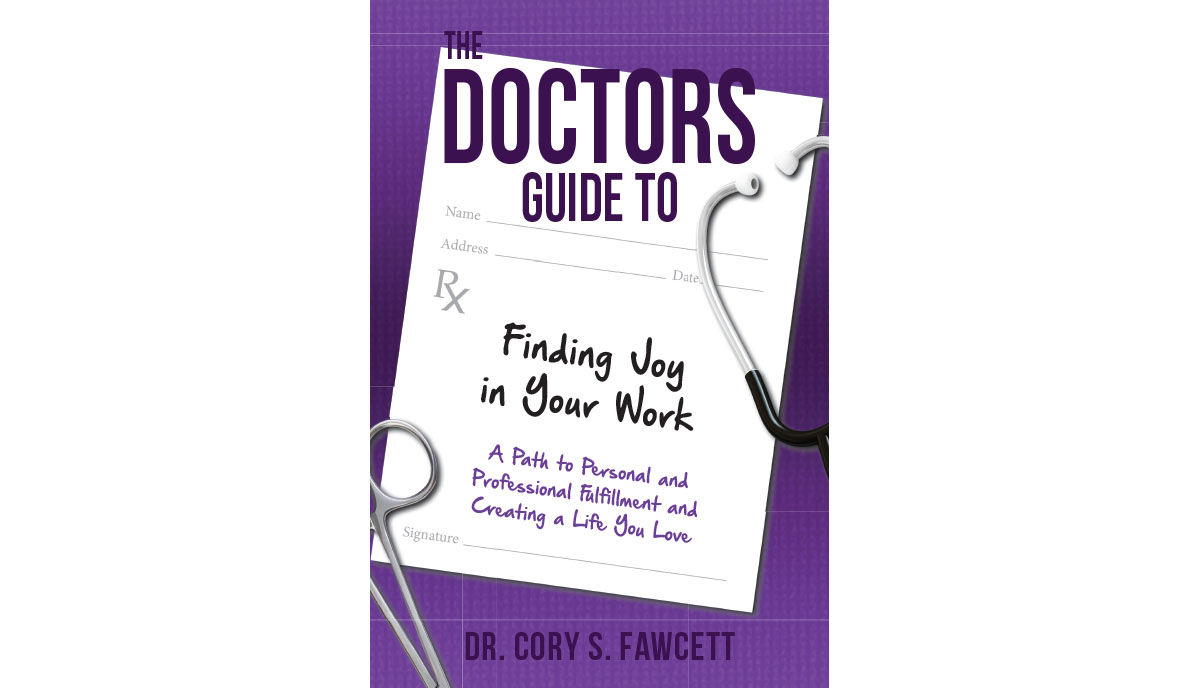The time has come for the next instalment in my award-winning Doctors Guide book series. Coming March 11th to Amazon is The Doctors Guide to Finding Joy in Your Work. Contained within the cover are the tools to not only find more joy at work, but also in all other areas of your life. Test readers who have read my other books have felt this one is the best yet.
James M. Dahle, M.D. (Founder of The White Coat Investor) was kind enough to write the forward for this book, as it was written based on a lecture I gave at his last physician’s wellness conference (WCICON24). I got such a good response from the lecture that I felt compelled to make finding joy the topic of my next book.
Unlike each of my prior books, this book doesn’t single out a special segment of professionals. For example, if you were not interested in owning investment real estate, then my real estate book was not applicable to you. The new book is pertinent for everyone. We all need more joy in our lives.
I use joy in the workplace, both for an owner and an employed physician, as the framework for the examples in the book, but you can extrapolate the concepts to find joy at home as well. I hope you will all get a copy when it is released and make your life more joyful. Please consider writing a review of the book after you read it. I will keep you informed of the release date when it is finalized.
Following is Jim’s forward for The Doctors Guide to Finding Joy in Your Work.
It is always an honor to be asked to write a foreword, but it is a particular honor when the book covers such an important subject. While it is currently fashionable to say, “It’s okay not to be okay,” far too many doctors are not okay right now. Dr. Fawcett hits the nail on the head when he describes a major reason behind this phenomenon: the lack of control over the work environment. There has been a multi-year trend of fewer and fewer physicians (and dentists too, for that matter) actually owning their jobs. They’re more often now employees subject to the whims of their employer, whether that’s a large health system, hospital, or private equity group. While this setup often reduces hassle for doctors, it also has two unfortunate side effects: first, the doctors generally make less money in the long run and second, and probably most importantly, the doctors lose a lot of control over how they do their day-to-day work.
When I left the military after my first four years as an attending emergency physician, the most important characteristic of the job I was looking for was that I wanted a partnership job. I wanted to own my job. I had had enough of being (literally) ordered around and told what to do all the time. While there are great opportunities, talented colleagues, and deserving patients in military medicine, the job was basically the opposite of what I was looking for as far as controlling how, when, where, and what I did on a day-to-day basis.
As an emergency physician partner, like other hospital-based specialists, it’s still not the same as owning your own practice. The hospital decides which nurses and techs I work with (and how many at a time), which specialists are on call for me (if any), and when the hospital is so full I must transfer admissions elsewhere. But as a group, my partners and I get to decide how we staff ourselves (when and how much we work), which emergency doctors we’ll be working with throughout our career, how we will use advanced practice clinicians in our practice, and how we divide up the money we earn from insurance companies, government payors, and the patients themselves. That control has made all the difference in my happiness at work. No longer do I come home saying I hate my job (a not infrequent complaint when I was an employee). We still have all the usual problems associated with an emergency department and its patients, but having a little control makes a huge difference in my own happiness doing the work.
Another area where I find Dr. Fawcett’s prescription spot-on is the importance of getting off your butt and making a change when you’re not happy. After a decade or so, I realized that working the overnight shifts was making a dramatic negative difference in the quality of my life. I never really liked those shifts, even as a resident, but it seemed like it was part of the experience of being an emergency physician, which I loved. Well, it turns out that wasn’t necessarily the case in my group of physicians, who were interested not just in practicing emergency medicine but in being happy. Once we made partner (which nearly everyone did after two years in this group), we were allowed to work any number and any combination of day, evening, and night shifts that we wanted. We simply adjusted
how much each of those shifts paid. It turned out that to get all the night shifts covered, we needed a 50% pay differential on a night shift compared to a day shift. So, if a day shift paid $2,000, a night shift would need to pay $3,000 to get it covered. Voila! All the shifts were covered, and everybody was able to work exactly the number and type of shifts they wanted. Some chose to work all nights and make more money. Others chose to work all evenings or all day shifts and have a nice lifestyle. Still others worked all nights but worked fewer shifts and were able to travel more while making the same amount of money as the day doctors. It was a real “choose your own adventure” kind of experience. For the life of me, I cannot figure out why more groups of doctors do not do the same thing.
For most of the last two decades, I have been helping doctors to become more financially literate and disciplined. I firmly believe that doctors with their financial ducks in a row are better doctors. They can better dedicate themselves to their craft, their patients, their families, and their own wellness. They don’t have to do anything “just for the money.” Instead, they can (and will) do whatever is in the best long-term interest of themselves and their patients. I only wish that Dr. Fawcett would have devoted more than one chapter to this extremely important subject. Although, he has written other books to address financial issues. Follow a few simple rules and you will find that by mid-career, doctoring is simply a well-paid hobby, not something you have to do for financial reasons:
1. Get rid of your student loans (if any) in the first five years out of training.
2. Put 20% of your gross income toward retirement every year, using tax protected retirement accounts as much as possible.
3. Invest that money intelligently for the long-term in a low-cost, broadly diversified portfolio of stock and bond index funds and possibly real estate. Don’t gamble with your serious money.
4. Recognize that being your own financial planner and investment manager is, on an hourly basis, the best paying hobby on the planet.
5. Spend the rest of your money on what actually makes you happy. Don’t buy things you don’t need with money you don’t have to impress people you don’t even like.
Many years ago, we started the Physician Wellness and Financial Literacy Conference to help doctors get a “fair shake” on Wall Street. Initially, I included some wellness (anti-burnout) content to make sure the conference would qualify for doctors to use their dedicated CME dollars to attend.
However, over the years I’ve recognized doctors need and want that wellness content. It is absolutely critical to long-term happiness and effectiveness in their chosen career. Information like that found in The Doctors Guide to Finding Joy in Your Work is no longer optional. You must learn this stuff if you want to be a good doctor, especially if you want to last 20, 30, 40, or more years in practice. Enjoy the book, but most importantly, have the courage to make the changes in your life and practice that will make you a better and a happier doctor.
James M. Dahle, M.D., FACEP
Founder of The White Coat Investor






Excellent forward by a legend in physician financial education and advocacy. Look forward to advertising, purchasing, and giving away ‘The Doctors Guide to Finding Joy In Your Work’ to many colleagues and physician executives at our medical group.